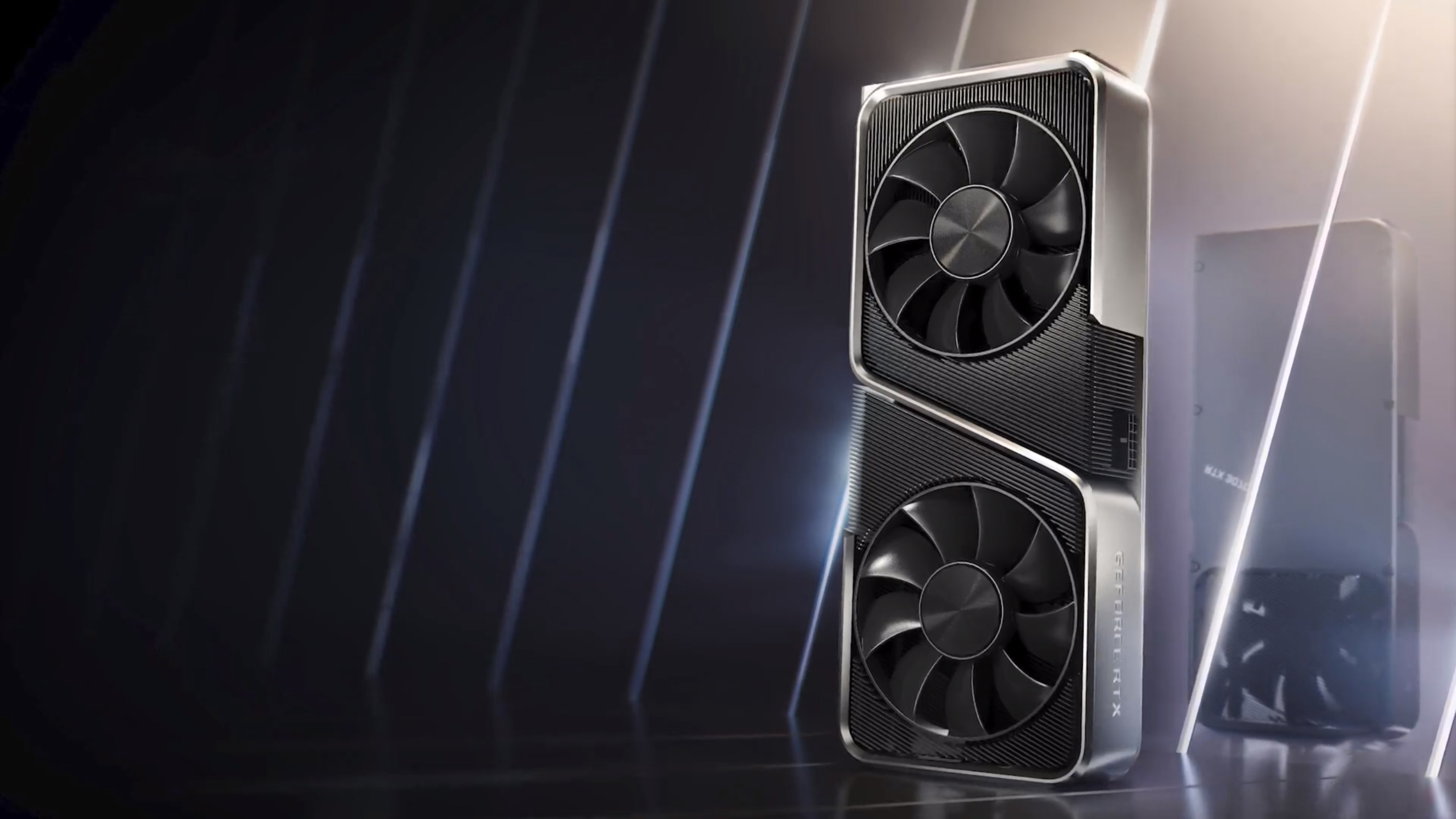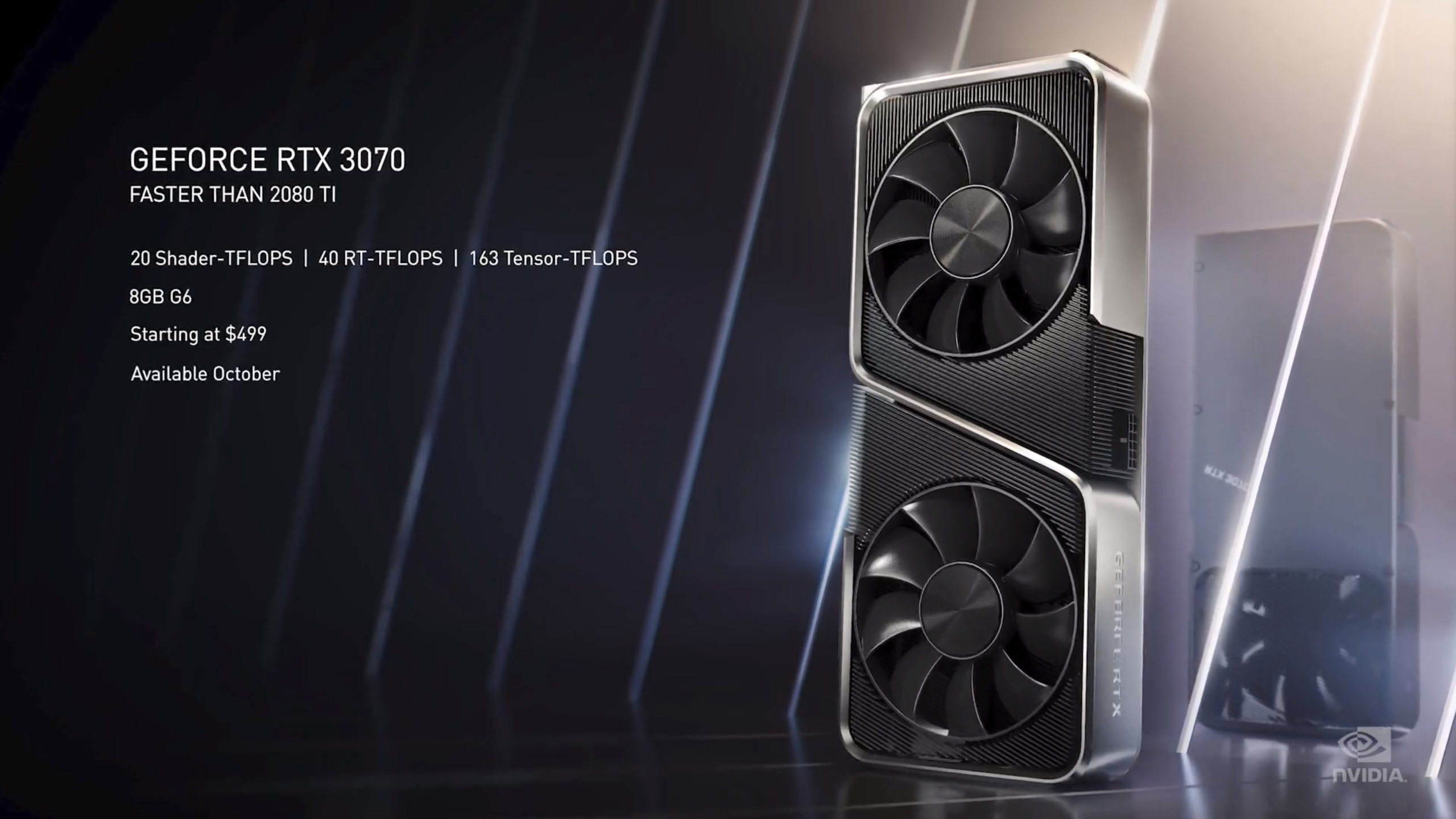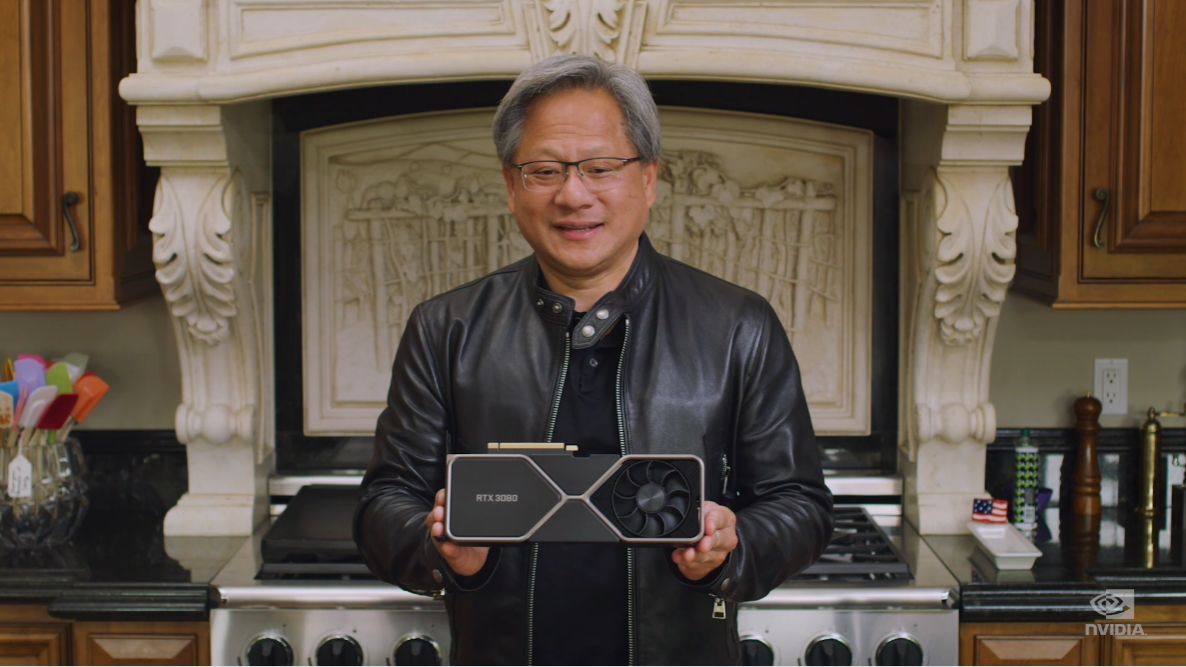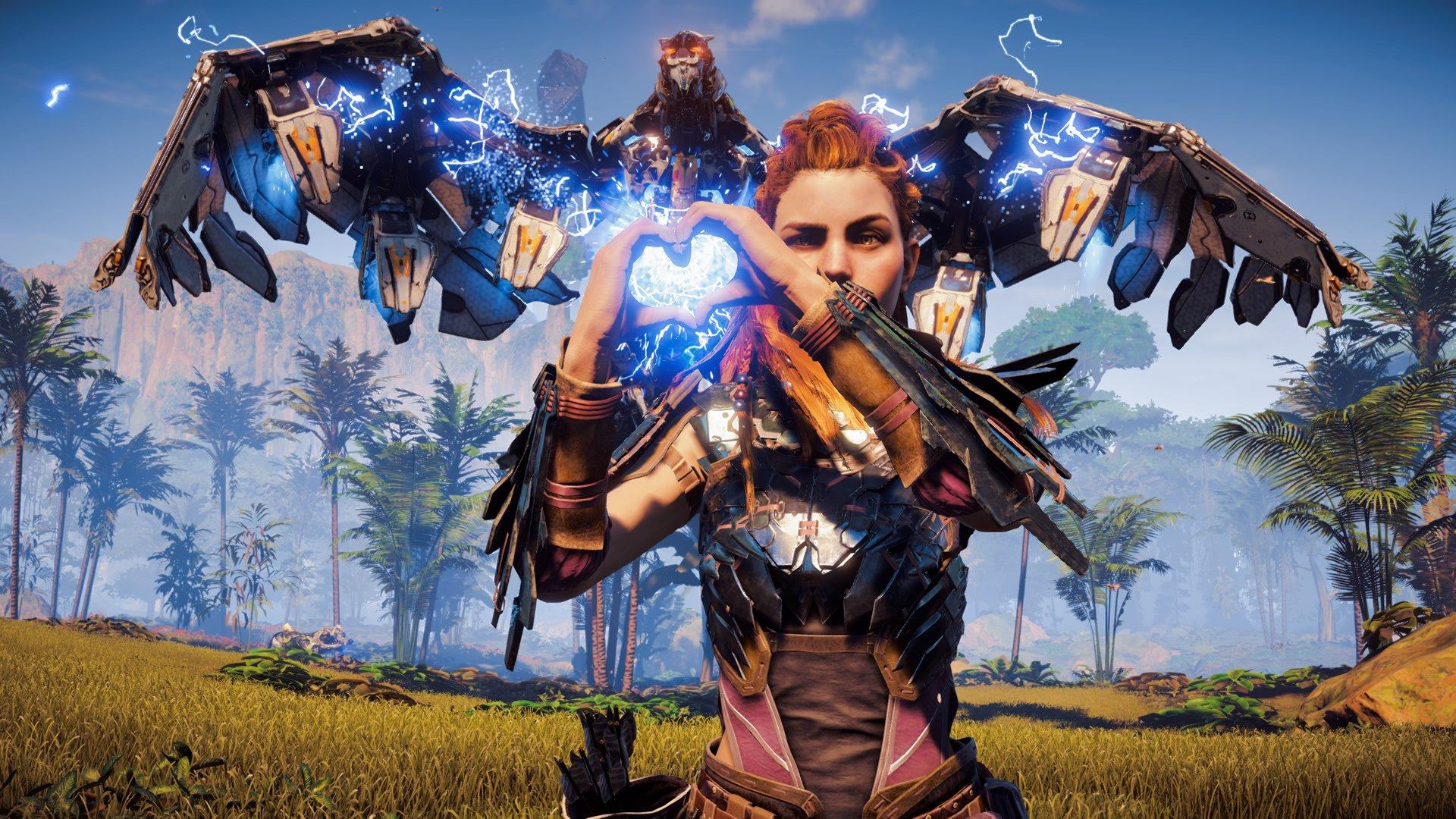The Nvidia GeForce RTX 3070 looks like a better buy than the PS5 or Xbox Series X
Opinion: not quite telling you to just buy it, but close

Sign up for breaking news, reviews, opinion, top tech deals, and more.
You are now subscribed
Your newsletter sign-up was successful
With the Nvidia GeForce RTX 3070, Nvidia may be shifting what the mid-range PC gaming scene looks like. Coming in at $499 (£469, around AU$680) while delivering performance that Nvidia claims is better than the $1,199 (£1,099, AU$1,899) RTX 2080 Ti – though that remains to be seen.
This graphics card is going to hit the street sometime in October, so obviously we haven't been able to test it for ourselves. We're not going to tell you to jump on the pre-order yet, but if everything Nvidia claims is true, whether it's about the raw graphics performance or the advances in IO performance, it will be a better buy than the PS5 and Xbox Series X, especially if you already have a decent gaming PC on hand.
The price-to-performance conversation obviously changes a bit if you have to build a new PC, but even then, PC gaming always carries a higher up-front cost.

Let's talk about raw power
For all the pomp and circumstance that was the Nvidia GeForce Special Event earlier today, Nvidia has pretty quietly launched the full specs of the three cards announced today. And, well, beyond the fact that the Nvidia GeForce RTX 3070 is limited to just 8GB of VRAM, the thing is packing 5,888 CUDA cores with a Boost Clock of 1.73GHz. According to my napkin math, that's about 20.3 TFLOPs of graphics performance, which tops the 12TFLOPs of the Xbox Series X, the 10.28TFLOPs of the PS5 and even the 13TFLOPs of the previous-generation RTX 2080 Ti.
Now, again, I haven't had a chance to test this out in actual benchmarks, so I can't speak to how it will look in real-world gaming workloads, but it's definitely not going to be slower than the RTX 2080 Ti, and at less than half the price, Nvidia has some impressive price-to-performance benefits now.
The RTX 3070, then, is going to be way more capable at delivering 4K gaming performance with none of the sacrifices that consoles will make – like checkerboard rendering, low detail settings and the loss of anti-aliasing – and if you already have a rig and you're looking to upgrade, it's going to be about the same price. Right now the rumors are all pointing to the PS5 being in the realm of $499 (£449, AU$749), which is exactly what the RTX 3070 is going to cost, only you're going to get it earlier, and it's going to be even better at 4K gaming with RTX On.

IO just got so much better
One of the announcements that will probably go overlooked is RTX IO. On PC, traditional storage APIs made it to where the CPU had to deliver data from your storage to your graphics card. Nvidia RTX IO essentially cuts out the middle man.
Sign up for breaking news, reviews, opinion, top tech deals, and more.
This new Nvidia storage API will work alongside the new DirectStorage API from Microsoft to boost graphics I/O performance by up to 100x – though we haven't had a chance to test that theory, either. This is remarkably similar to the groundbreaking storage tech on display in the PS5, and means that PC gamers won't have to worry about being behind the curve when it comes to storage technology.
According to Nvidia, "GeForce RTX GPUs are capable of decompression performance beyond the limits of even Gen4 SSDs, offloading dozens of CPU cores' worth of work to deliver maximum overall system performance for next generation games."
Though it should be noted that if you really want to take advantage of this to its fullest potential, you're likely going to need a PCIe 4.0 SSD, just so you can be sure you're eliminating as many bottlenecks as you can.

What even are exclusives anymore?
And, of course, when we're talking about what platform people should (or shouldn't) spend their hard-earned money on, the topic of exclusives is going to inevitably come up. But I still think the RTX 3070 would be a better investment – hear me out.
Everyone already knows that for Xbox exclusives, Microsoft is releasing everything on both Xbox Series X and PC at the same time, as part of the same Game Pass subscription service, which automatically makes the PC platform, powered by an RTX 3070, a better value.
But what tips that scale even more now is that Sony is planning to release even more games to the PC, thanks in no small part to the massive success of Death Stranding and Horizon Zero Dawn – even if the latter was a a nightmare of a port.
Both Xbox and PlayStation games are going to be living on PC, which basically only leaves Nintendo games as inaccessible on PC. And if I can run all of these games better on the platform that I just honestly enjoy more than any game console – there's more to PC gaming than just mere horsepower – why would I ever play a game on a console ever again?

I'll probably be skipping this console generation
There were two things that were drawing me to the PS5 later this year: the groundbreaking SSD technology and the exclusive Sony games that I have a definite soft spot for.
With Nvidia RTX IO, combined with the AMD Ryzen 9 3900X, I'm going to have access to SSD performance that will likely be, if not faster, equivalent to that which is found on the PS5. This is definitely something I will be testing myself, but right now it looks like I can get the performance I want on the platform I'm comfortable on.
Plus with pretty much every game eventually making its way to PC anyway, I'm not exactly going to be thirsty for new games to play, with the exception of Nintendo Switch games. But even for my precious Pokemon and Zelda games, I already have a Switch, and Nintendo consoles in general offer an experience I just can't get on PC. The PS5 and Xbox Series X are just going to be miniature locked-down PCs that I can't upgrade.
So, basically, with the RTX 3070 staying at the same price as the mid-range RTX 2070, it doesn't make much sense to jump onto one of the next-generation consoles, especially if you already have a halfway-decent gaming rig.
- Here's everything you need to know about the RTX 3090

Jackie Thomas is the Hardware and Buying Guides Editor at IGN. Previously, she was TechRadar's US computing editor. She is fat, queer and extremely online. Computers are the devil, but she just happens to be a satanist. If you need to know anything about computing components, PC gaming or the best laptop on the market, don't be afraid to drop her a line on Twitter or through email.